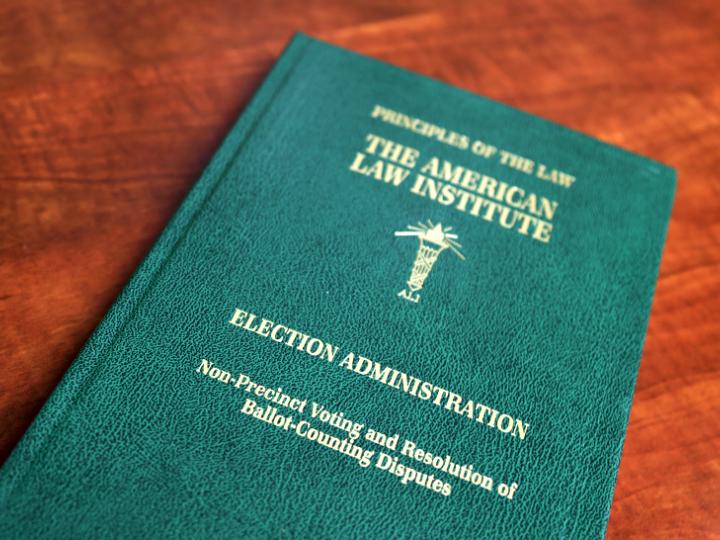ALI’s Principles of the Law, Election Administration is now available. The principles apply to any type of elective office and are structured to be useful to multiple audiences, including state legislatures, state courts, and state officers such as secretaries of state and local election officials.
The project is divided into three Parts.
Part I outlines the ways in which states can securely and efficiently incorporate early voting and absentee voting to maximize accessibility and convenience for voters. Part I may be used by a judge in any case that involves an issue concerning early or absentee voting.
Parts II and III address how states can manage post-election disputes, with Part II focusing on elections generally and Part III concentrating on the procedures necessary in disputed presidential elections in light of unique scheduling constraints.
The animating principle throughout is that government officials and institutions involved in counting ballots should neither favor, nor appear to favor, one side in the implementation of ballot-counting rules and that procedures should be adopted to promote a sense of legitimacy and integrity of the vote-counting and election process.
“This project embodies the ALI’s commitment to the value of bipartisanship, upon which all projects, including this one, are premised,” said Edward B. Foley, Reporter on the Election Administration project. “We were careful in our selection of the project’s Adviser group to include representatives from both sides of the aisle. From the outset, we have recognized that for the ALI’s work on the topic of election law to be influential, it must command the respect of both major parties in our political system.”
